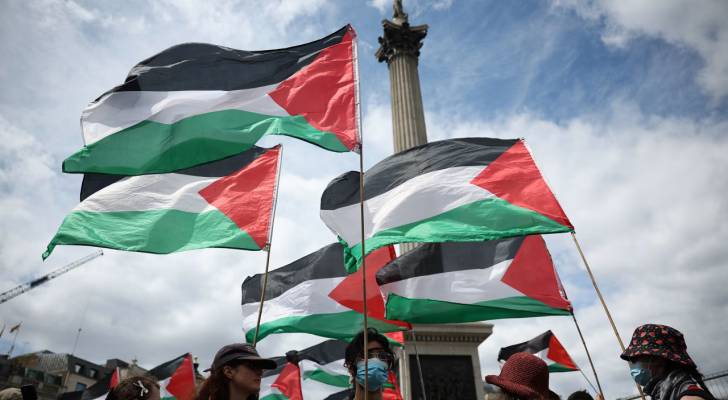Who recognises State of Palestine, who doesn't, and why does it matter?
Britain, Australia, and Canada on Sunday formally recognized a Palestinian state, marking the first G7 countries to do so after nearly two years of genocide in the Gaza Strip.
France, Belgium, and other countries are expected to follow suit at a United Nations General Assembly summit in New York on Monday.
The State of Palestine was unilaterally proclaimed by the Palestinian leadership in exile in 1988. Of the territory claimed, 'Israel' currently occupies the West Bank, while the Gaza Strip remains largely in ruins. At least 144 of the 193 UN member countries already recognize the State of Palestine. However no confirmation was obtained from three African countries.
Portugal has officially recognised the state of Palestine on Sunday, while France, Belgium, Luxembourg, and Malta are also anticipated to announce recognition during a summit on the future of the two-state solution, chaired by France and Saudi Arabia.
Many countries had already recognized Palestine, including Russia, nearly all Arab nations, most African and Latin American countries, and several Asian countries such as India and China. Algeria became the first to officially recognize the Palestinian state on November 15, 1988, minutes after late PLO leader Yasser Arafat proclaimed independence. Recognition spread to dozens of other countries in the following months, with another wave occurring in 2010–2011.
As a result to the latest 'Israeli' offensive in Gaza, an additional 12 countries were driven to recognize the Palestinian state. 'Israeli' Prime Minister Benjamin Netanyahu’s government continues to reject the idea of Palestinian statehood.
Recognition remains uneven worldwide. Japan, South Korea, Singapore, Cameroon, Panama, and most countries in Oceania do not recognize Palestine. Europe is split roughly 50-50, with Italy and Germany maintaining non-recognition, while Norway, Spain, Ireland, Slovenia, and the UK have recognized the state in recent years. Sweden recognized Palestine in 2014.
Former Eastern-bloc countries like Hungary and the Czech Republic do not recognize Palestine at a bilateral level, despite previous trends of recognition in the region.
Political and international law experts said on Roya program Nabd Al-Balad that recent international recognition of Palestine, while not a “knockout blow” to 'Israel', represents a pivotal turning point.
The move provides Palestine with new legal and political tools and places the 'Israeli' right-wing project in a real dilemma.
A Gradual Historical Shift, Not a Sudden Victory
Political analyst Hamada Fra’ana described the recognition as the result of “gradual accumulation” rather than an abrupt ideological shift. He noted that countries like Britain, historically hostile and instrumental in the establishment of 'Israel' through the Balfour Declaration, are beginning to reconsider their positions.
Analysts attributed this European shift to three main factors:
- The suffering and hardships of the Palestinian people in Gaza
- 'Israeli' crimes that have forced Western countries to reassess their stance.
- Europe’s desire to overcome historical guilt related to the persecution of Jews on its soil.
Legal Implications: From the “Balfour Mistake” to International Standing
International law professor Dr. Omar Al-Jazi described Britain’s recognition as an acknowledgment of the “Balfour mistake,” accelerated by Israel’s intransigence and military aggression.
Al-Jazi explained that the recognition carries significant legal consequences:
- Enhanced International Status: Grants Palestine UN “observer state” membership, limiting the ability of the United States to veto actions against it.
- Access to International Organizations: Opens doors for Palestine to join specialized treaties and agencies, such as the International Civil Aviation Organization, and claim rights over territorial waters, oil, and gas fields.
- Legal Accountability: Holds Israel legally responsible for its crimes and compels compliance with international law, including a halt to forced displacement.
- Practical Changes: Will affect official documents, passports, and designations within Palestine.
Defeat for the Far-Right and a Victory for Global Solidarity
International relations expert Ashraf Al-Akka noted that these recognitions are the direct result of a “global popular and diplomatic movement pressuring Western governments.”
He said the step, while not an absolute victory for Palestinians, is a “defeat for the Israeli occupation” and “strikes a major blow to the far-right Israeli agenda.”
Al-Akka added that the growing international momentum will help unify Palestinian resistance worldwide and strengthen resilience in the face of settlers in the West Bank.




